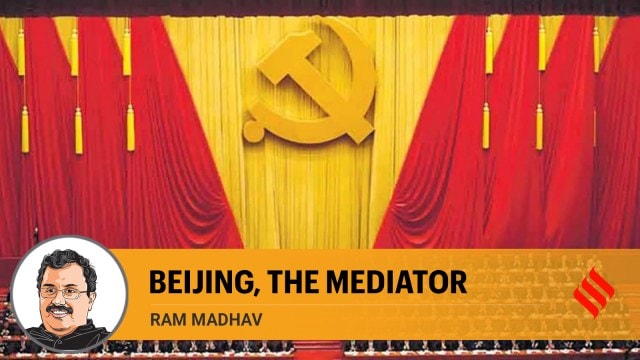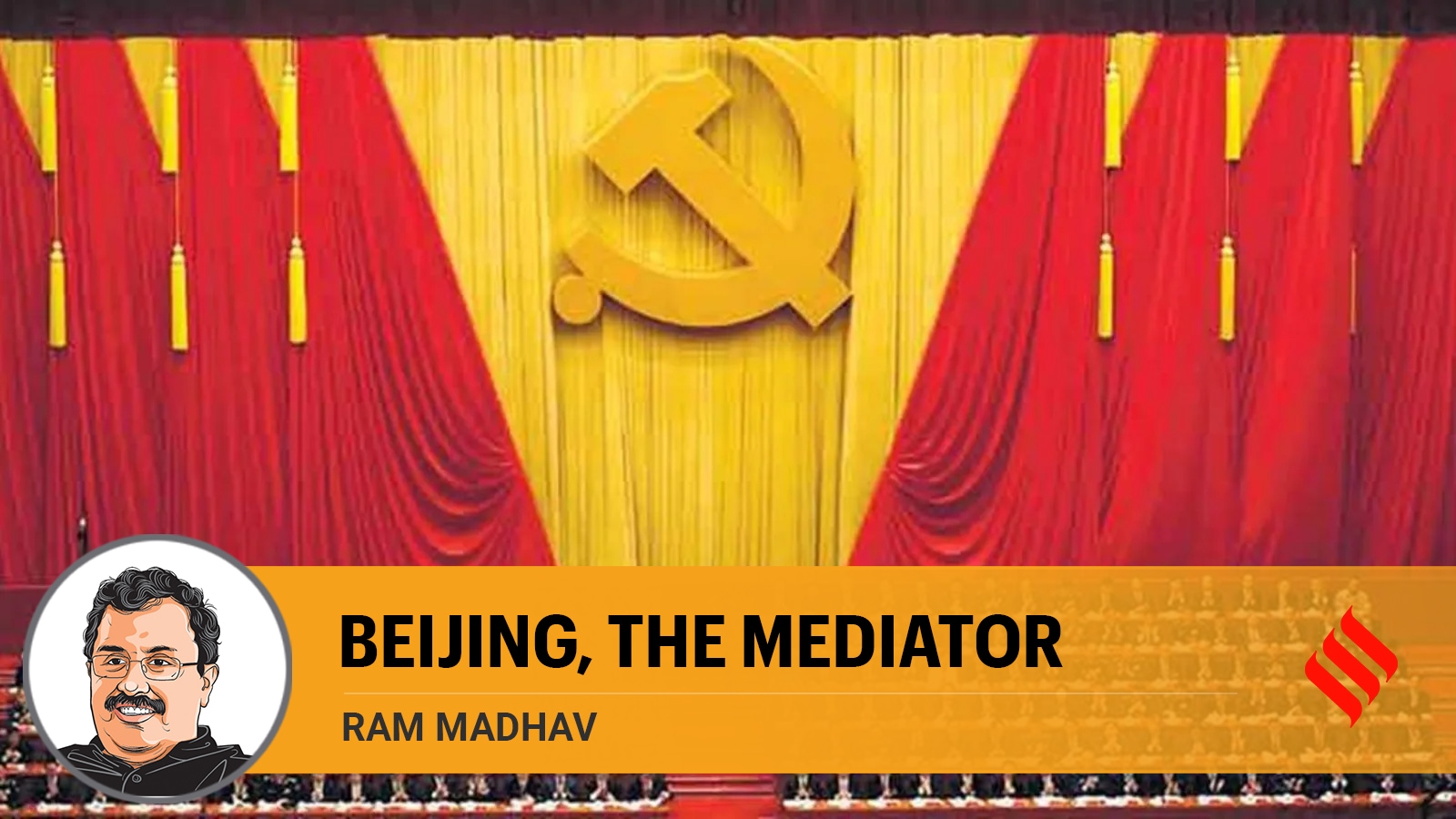
In March 2023, China stunned the world by brokering an agreement between arch-enemies, Iran and Saudi Arabia. At a meeting hosted in Beijing by Wang Yi, the Foreign Minister of China, representatives of both countries — Ali Shamkhani, then Secretary of the Supreme National Council of Iran, and Musaad bin Mohammed Al-Aliban, Minister of State and National Security Advisor of Saudi Arabia — issued a joint statement agreeing to re-establish diplomatic ties. The meeting was widely seen as a great success of the Chinese foreign policy to limit American influence in the Middle East.
When Wang described his country as a “kind and trustworthy mediator” and boasted about “being a constructive player in promoting proper handling of global heated issues”, many in the West dismissed it as empty rhetoric. Global flash points, from Ukraine to Gaza, are not easy to resolve, many thought. But a year after the intervention in the Middle East, China achieved another coup. Wang Yi mobilised leaders of 14 different factions of the Palestinian movement, including Hamas and Fatah, in Beijing and released a unanimously approved statement called the “Beijing Declaration”. Signed earlier this week, the Declaration promised to end divisions within the movement and strengthen Palestinian national unity.
Wang proposed a three-step solution to end the Palestinian conflict. The first step is to implement a comprehensive ceasefire in the Gaza Strip as soon as possible and provide humanitarian assistance. The second is upholding the principle of “Palestinians governing Palestine”. And the third was the two-state solution.
The declaration may remain on paper for several reasons. First, keeping all the factions under the umbrella of the Palestine Liberation Organisation (PLO) is not easy, although Wang claimed that “the PLO is the sole legitimate representative of all the Palestinian people”. Several efforts were made in the past to unite them, led by Egypt in 2011 and Algeria in 2022. But they were unsuccessful.
Second, the US and Israel consider Hamas a terrorist organisation and reject any proposal to legitimise it. Third, the most difficult part of the declaration is the creation of a “truly independent Palestinian state in accordance with relevant UN resolutions,” as claimed by Wang. Israel swiftly rejected the Beijing Declaration, insisting that “Hamas’s rule will be crushed.” Israeli Foreign Minister Israel Katz also dismissed any proposals to allow the Palestinian Authority to take control of Gaza.
A day after the Beijing Declaration, Wang got busy holding talks with the visiting foreign minister of Ukraine, Dmytro Kuleba, about resolving the Ukraine conflict. He insisted that China believes in bringing warring parties to the negotiation table. Kuleba, on his first visit to China since the war broke out, responded positively by saying that Beijing can play a significant role in the pursuit of a just and stable resolution of the Ukraine crisis, and Kyiv was prepared to conduct negotiations with Moscow.
Irrespective of the outcome, these proactive moves by China indicate an important shift in its foreign policy. As the world enters a phase in which Cold War 2.0 is escalating, the Chinese leadership is demonstrating renewed confidence in its ability to displace the US as the hegemon. This shift became conspicuous after Xi Jinping attained full control of the party organisation in 2018. His predecessors, Jiang Zemin and Hu Jintao, strictly adhered to Deng Xiaoping’s dictum — “hide your strength, bide your time”. But under Xi, words like “regional” and “neighbourhood” have been replaced by “global” and “connectivity” in the Chinese lexicon. There is a renewed urgency to introduce CCP’s terminologies, such as the Belt and Road Initiative (BRI), “shared future of mankind”, and “inclusive multilateralism”, on the world stage.
Xi has upgraded his regional vision to introduce global initiatives with far-reaching and ambitious targets. In the last three years, he had come up with three major new initiatives, all described as “global initiatives” — Global Development Initiative (GDI), Global Security Initiative (GSI) and Global Civilisation Initiative (GCI).
Xi first talked about the Global Security Initiative (GSI) in April 2022, further expanding it through a concept paper in February 2023. China pitches GSI as an alternative to the US-led concept of “rules-based order”. Its core principles include the importance of state sovereignty and territorial integrity, non-interference in the internal affairs of states, and opposition to unilateral sanctions and power bloc confrontations. Xi’s intent behind articulating these principles was to catapult China into the leader’s role in global governance and build a new world order with Chinese characteristics.
A year earlier, at the UN General Assembly in 2021, Xi outlined his proposal for the Global Development Initiative (GDI) “to help revive global efforts to achieve the Sustainable Development Goals (SDGs)” by 2030. Like the GSI, the Chinese leadership’s larger agenda behind this benign-sounding proposal was to usurp the international dialogue on the global development agenda, infuse it with Chinese principles and place it under their tutelage.
Then came the Global Civilisation Initiative (GCI), proposed by Xi in March 2023, “for respecting the diversity of civilisations, advocating the common values of humanity, valuing the inheritance and innovation of civilisations, and strengthening international people-to-people exchanges and cooperation”. In a veiled rejection of Western efforts at building a global civilisation based on their value system, the GCI argued that “a single flower does not make spring, while one hundred flowers in full blossom bring spring to the garden”.
As China goes global, the world must brace for its dominance over the Global South and the imposition of its worldview on a number of countries. Cold War 2.0 is heating up.
The writer, president, India Foundation, is with the RSS



